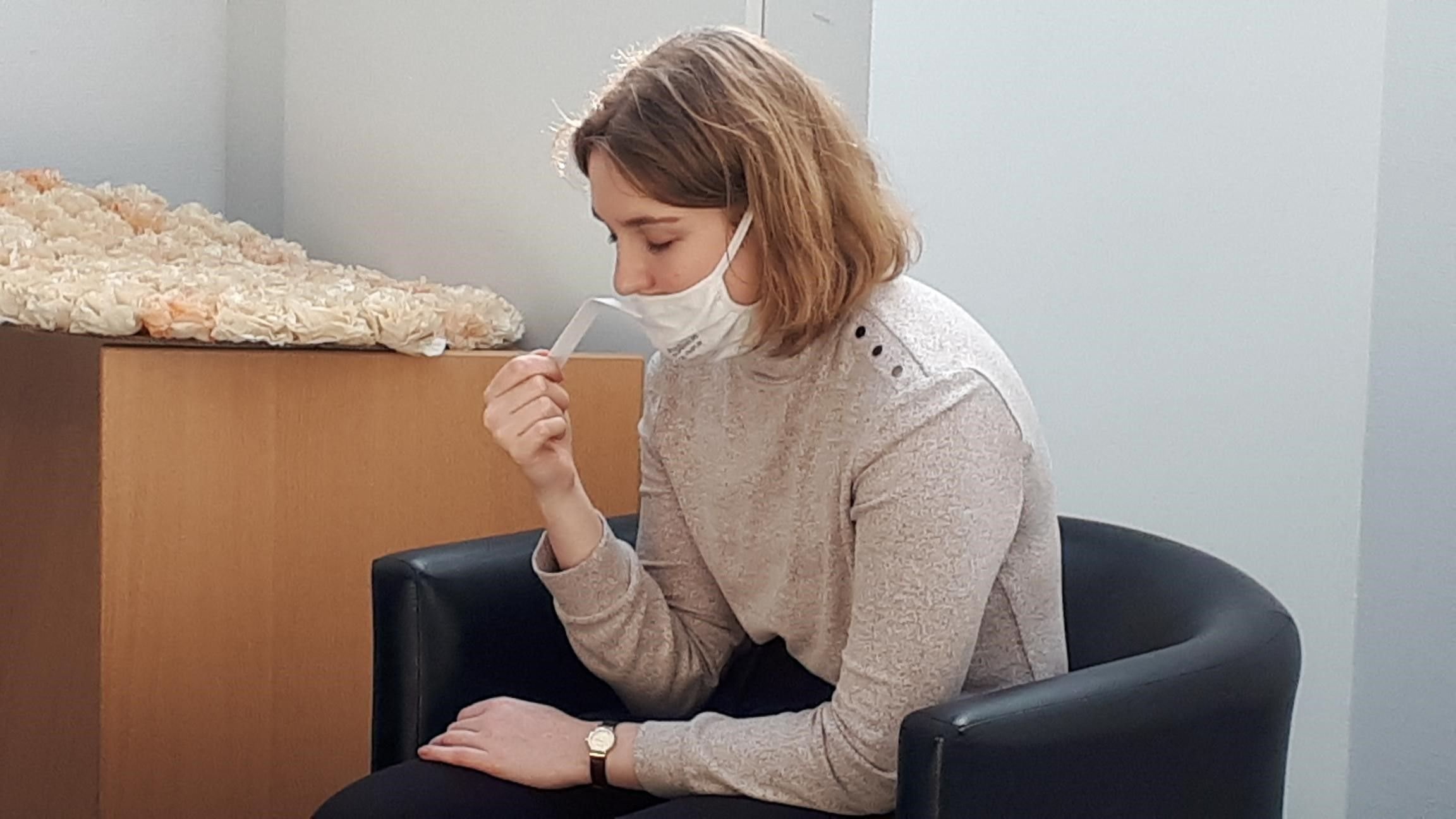This is one of the first symptoms of Covid-19 identified, which made it possible to quickly confirm the diagnosis.
The loss of smell, potentially very disabling for certain professions and certain situations of daily life, can indeed last several months, noted the researchers of the Pasteur Institute.
Until then, we knew that anosmia affected 85% of people with Covid-19 and that it lasted for a quarter of them after two months.
In this new study, scientists also believe that this persistence is "attributable" to the long-lasting presence of the virus and inflammation in the olfactory lining.
Read alsoOur advice to help you regain your sense of smell
Their work on eleven patients and on golden Syrian hamsters, published in the journal Science Translational Medicine, explains the mechanisms of the loss of smell linked to Covid in the short and long term.
The study shows that classic RT-PCR tests performed on a nasopharyngeal swab using a long swab can turn out to be negative even though the virus persists deep in the nasal cavities, in the olfactory mucosa.
This discovery shows that a diagnosis of the coronavirus by nasal brushing can be considered to supplement the nasopharyngeal swab in patients with a loss of smell, according to the Pasteur Institute.
VIDEO.
Covid-19: olfactory therapy to help patients regain their sense of smell
Guilherme Dias de Melo and colleagues analyzed the olfactory neuroepithelium - a specialized, odor-sensitive mucosa inside the nasal cavity - in seven patients with Covid-19, not requiring hospitalization and who reported loss of smell.
They found that the coronavirus infects and replicates in olfactory neurons, immune cells, and other types of cells in the olfactory lining, leading to inflammation and cell death.
A gateway to the brain
The researchers also spotted the genetic material of the virus, SARS-CoV-2 RNA, which persisted in four other patients with long-term loss of smell and which had not been detected by the conventional PCR test. from nasopharyngeal swabs. In addition, hamsters infected with the virus showed a viral presence in the olfactory mucosa and in the brain, as well as loss of taste and smell.
Infection of the olfactory neurons of the nasal olfactory mucosa “could constitute a gateway into the brain and explain why some patients develop various clinical manifestations, of a psychological nature (anxiety disorders, depression) or neurological (cognitive decline). , susceptibility to develop a neurodegenerative disease), which must be the subject of new studies, ”notes the Pasteur Institute in a press release.
"According to our results, the loss of smell in Covid-19 can persist for several months in some patients, and this persistence of clinical signs is attributable to the persistence of the virus and of the inflammation in the olfactory mucosa" comments Marc Lecuit (Pasteur, Inserm, AP-HP), co-author of the study. There remains a question about the contagiousness of these patients, but “if they are, it is undoubtedly very weak at worst. Studies are underway to determine it ”, estimates Hervé Bourhy, co-signatory of the study.









